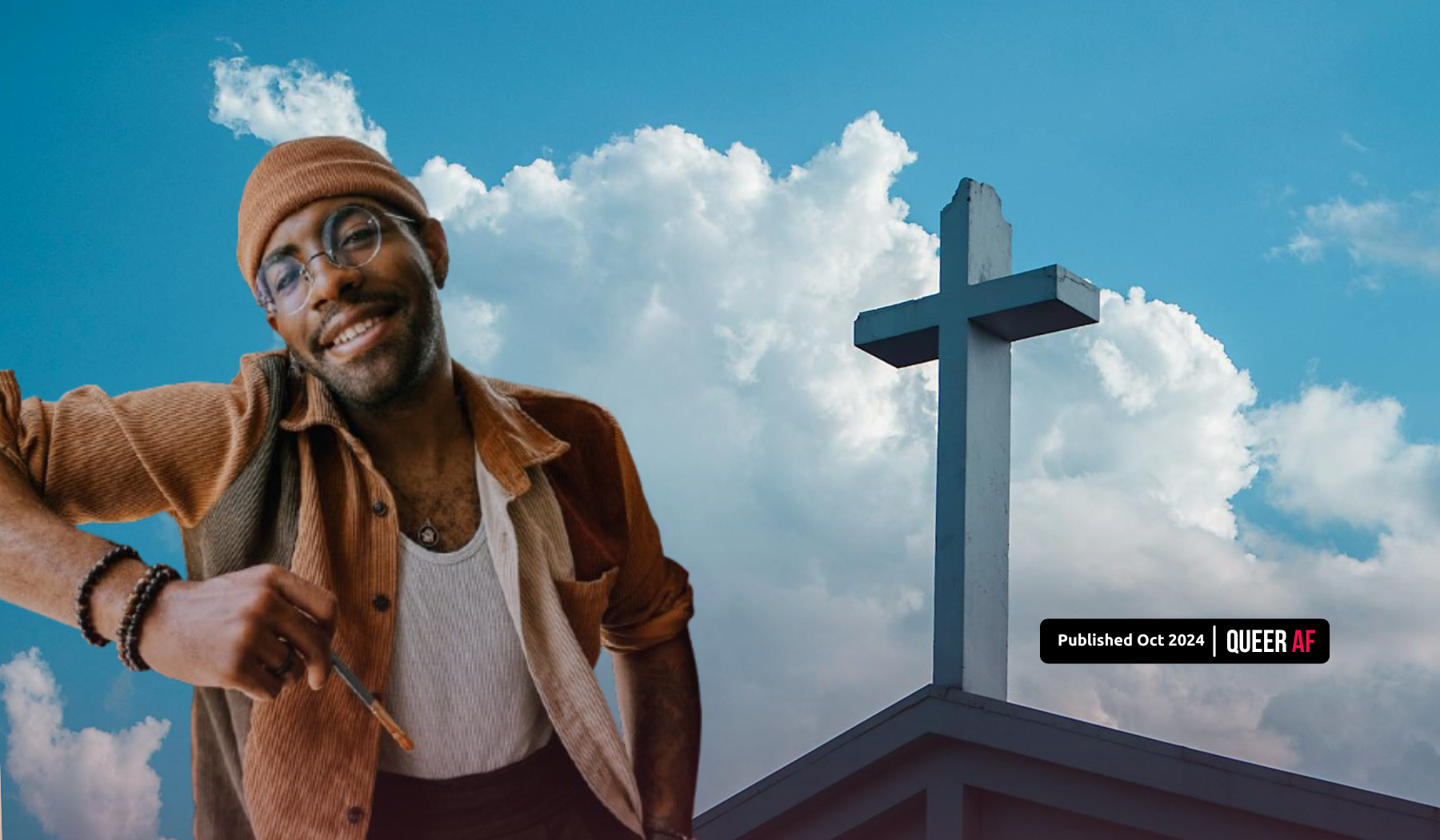
For many Black Caribbean families, faith is more than religion — it’s culture, community, and history. But what happens when that faith rejects a part of who you are? As Black LGBTQIA+ individuals navigate their identities, the tension between faith and queerness can become an impossible struggle.
Growing up in Brooklyn, NY, and Orlando, FL, I straddled the lines between queerness, Blackness, and religion. Raised in a Pentecostal and Caribbean household, faith was non-negotiable.
But for me, the church was never a refuge — it was a place where I felt judged, where I learned that my queerness made me an outsider. The very space that was meant to uplift my community was the same one that left me feeling broken, constantly at war with myself.
For me, growing up in a deeply religious Black community meant that religion wasn’t just a Sunday affair; it was woven into my very identity, history, and culture. In our Pentecostal church, being queer wasn’t just wrong — it was an abomination. I internalized this judgment, believing that I was inherently broken because of who I was.
In an attempt to fix myself, I even went to ministry school to become a pastor — a story which is not uncommon for many queer black folks with similar religious backgrounds.
But the deeper I got into ministry, the more I realized that this was never going to change my queerness — or God’s love for me.
Caribbean people, in particular, carry this deep religious influence to places like the UK, Canada, and the U.S., where secularism is more common. But for us, the church serves not just as a place of worship but as a central hub for family, community, and support, creating immense pressure for LGBTQIA+ individuals to conform.
In the Global North, especially among white populations, religion has been on the decline for years. But Black communities, particularly those with Caribbean roots, remain deeply religious, often through Evangelical or Pentecostal traditions. These forms of Christianity owe their prevalence largely to centuries of white colonization and imperialism.
During the era of European colonization, Christianity was imposed on African and Caribbean societies as part of the colonial agenda. It was used to justify the subjugation and control of Black and indigenous peoples, with colonizers often erasing indigenous spiritual practices and replacing them with Christianity.
The forced conversion of enslaved Africans was central to this process, and over time, Christianity became deeply embedded in these communities, even after the fall of colonial powers.
As a result, religion is now a cornerstone of identity in Black Caribbean and African communities, despite its origins in colonial violence.
For LGBTQIA+ individuals, this history is fraught with tension, as the very religion that was once a tool of colonial oppression is now often wielded against them in the form of exclusion from faith communities.
For the Black LGBTQIA+ community, the stakes are incredibly high. Religious communities are a gathering space, a place of celebration and mourning, and a hub for social activism. So being rejected by the church isn’t just about losing a place of worship — it’s about losing a central piece of cultural and familial identity. It’s something we saw play out in Season Four of Sex Education, as gay character Eric tussled with both his faith and sexuality - and the potential loss of his family and religious community.
Without access to these spaces, Black LGBTQIA+ individuals are often forced into isolation, cut off from the very community that should be a source of strength.
A UCL study found that 1 in 3 Black LGBTQIA+ individuals felt unwelcomed by their religious communities, and many reported feeling excluded from both their racial and LGBTQIA+ identities.
But zoom out from all of this, and there is a bigger picture that’s crucial to address. American Evangelism, a movement that emerged in the early 18th century, focused on spreading the gospel, personal salvation, and a literal interpretation of the Bible.
This form of Christianity has historically been tied to social conservatism, and in the US, it’s frequently linked with opposition to LGBTQIA+ rights.
Anti-LGBTQIA+ rhetoric in Evangelical spaces often paints queerness as sinful and incompatible with Christian values. This is exacerbated by groups like the Family Research Council, which propagate anti-queer propaganda under the guise of religious doctrine.
Despite the challenges, there’s hope. Movements like The Reclamation Project and other inclusive spiritual spaces are creating pathways for LGBTQIA+ people to embrace both their queerness and their faith without having to sacrifice one for the other.
These LGBTQIA+ affirming faith communities are growing, offering spaces where people like me can reconcile our spirituality with our identity.
This is a journey many Black LGBTQIA+ individuals are beginning to take. Faith and queerness are not mutually exclusive, and in modern contexts, many are finding new ways to connect with their spirituality.
Though I’ve personally walked from Christianity and now identify as agnostic, I recognize that there are Christians creating truly loving, inclusive spaces for LGBTQIA+ people, which offers hope for a more compassionate faith.

More than a month
At QueerAF, we're obsessed with journalism and storytelling that puts lived experience in the driving seat.
So we're thrilled to be able to bring you Nathanael's perspective - and those of several other Black queer creatives - this Black History Month.
As a small indie publisher, we've done this series on a shoe-string budget. Everyone's been paid, and received mentoring and support - but imagine what we could do with more resources.
This month, our ask to you is this: if you learn, grow from or enjoy our UK Black History Month series, consider investing in it.
Help us fund even more Black, queer and trans creatives to tell stories - all year around.










